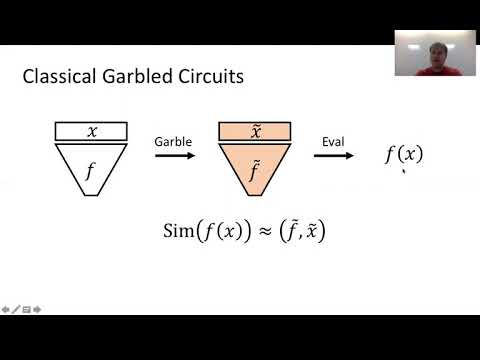CryptoDB
On the Round Complexity of Secure Quantum Computation
| Authors: |
|
|---|---|
| Download: |
|
| Conference: | CRYPTO 2021 |
| Abstract: | We construct the first constant-round protocols for secure quantum computation in the two-party (2PQC) and multi-party (MPQC) settings with security against malicious adversaries. Our protocols are in the common random string (CRS) model. - Assuming two-message oblivious transfer (OT), we obtain (i) three-message 2PQC, and (ii) five-round MPQC with only three rounds of online (input-dependent) communication; such OT is known from quantum-hard Learning with Errors (QLWE). - Assuming sub-exponential hardness of QLWE, we obtain (i) three-round 2PQC with two online rounds and (ii) four-round MPQC with two online rounds. - When only one (out of two) parties receives output, we achieve minimal interaction (two messages) from two-message OT; classically, such protocols are known as non-interactive secure computation (NISC), and our result constitutes the first maliciously-secure quantum NISC. Additionally assuming reusable malicious designated-verifier NIZK arguments for NP (MDV-NIZKs), we give the first MDV-NIZK for QMA that only requires one copy of the quantum witness. Finally, we perform a preliminary investigation into two-round secure quantum computation where each party must obtain output. On the negative side, we identify a broad class of simulation strategies that suffice for classical two-round secure computation that are unlikely to work in the quantum setting. Next, as a proof-of-concept, we show that two-round secure quantum computation exists with respect to a quantum oracle. |
Video from CRYPTO 2021
BibTeX
@inproceedings{crypto-2021-31227,
title={On the Round Complexity of Secure Quantum Computation},
publisher={Springer-Verlag},
doi={10.1007/978-3-030-84242-0_15},
author={James Bartusek and Andrea Coladangelo and Dakshita Khurana and Fermi Ma},
year=2021
}

